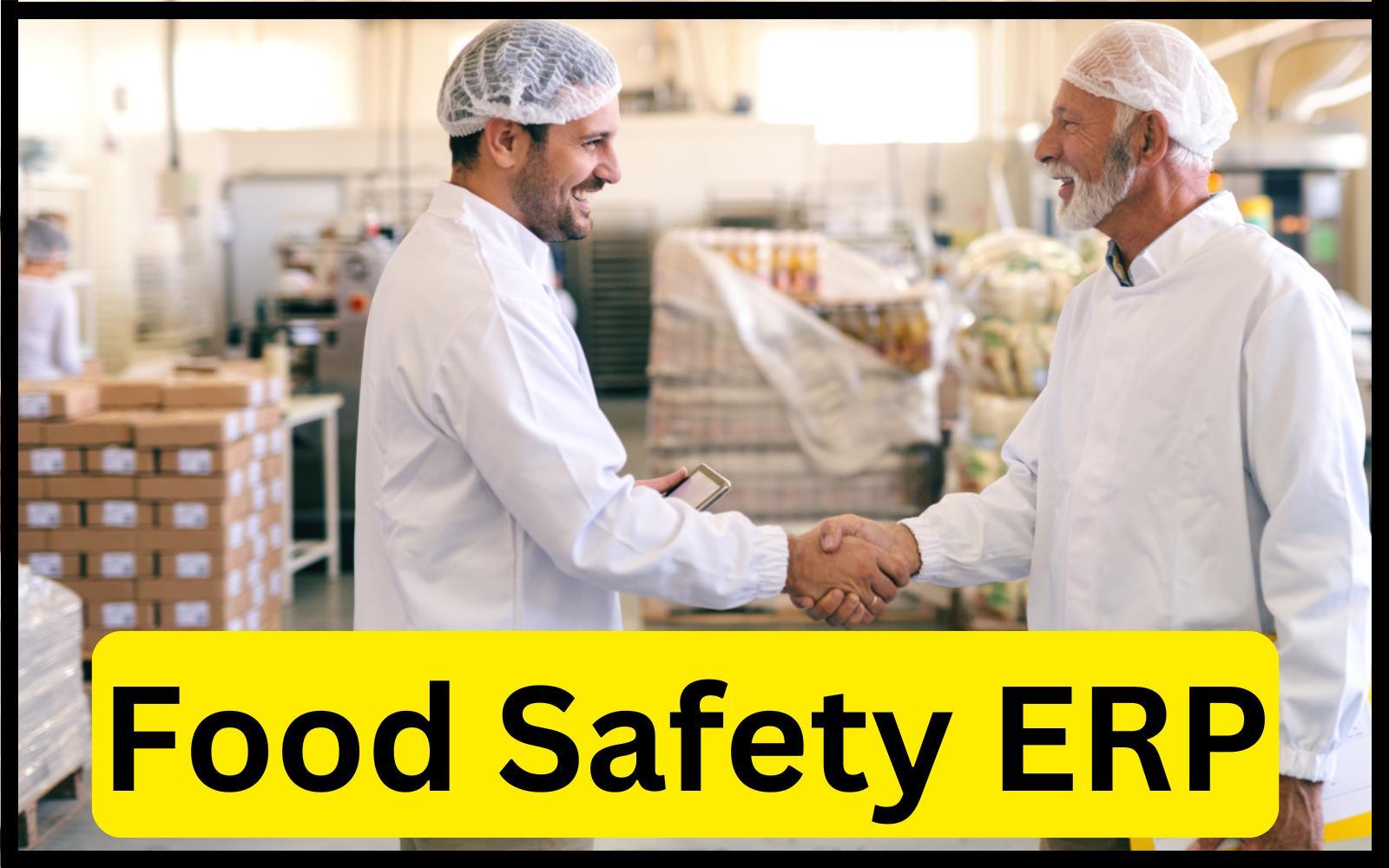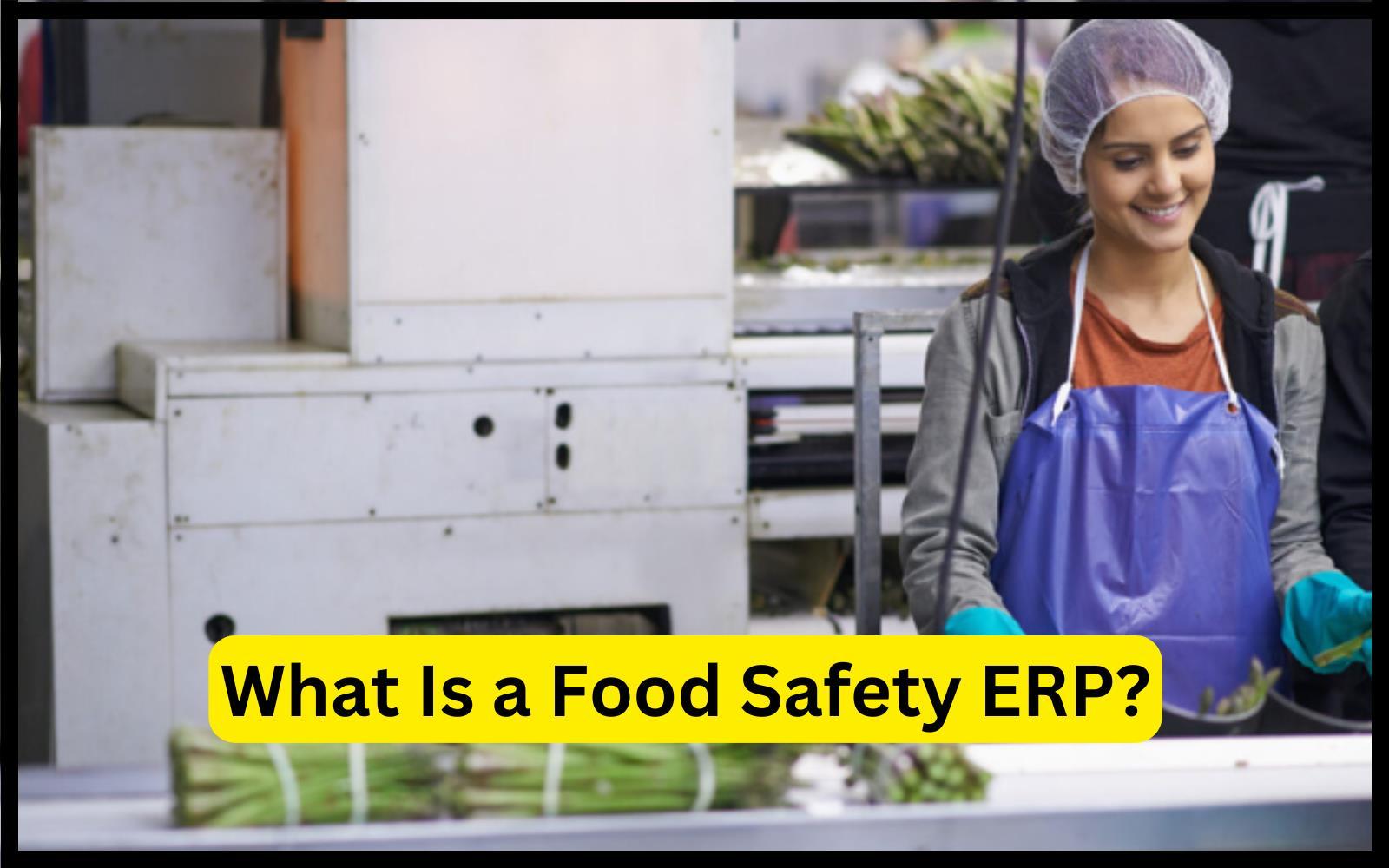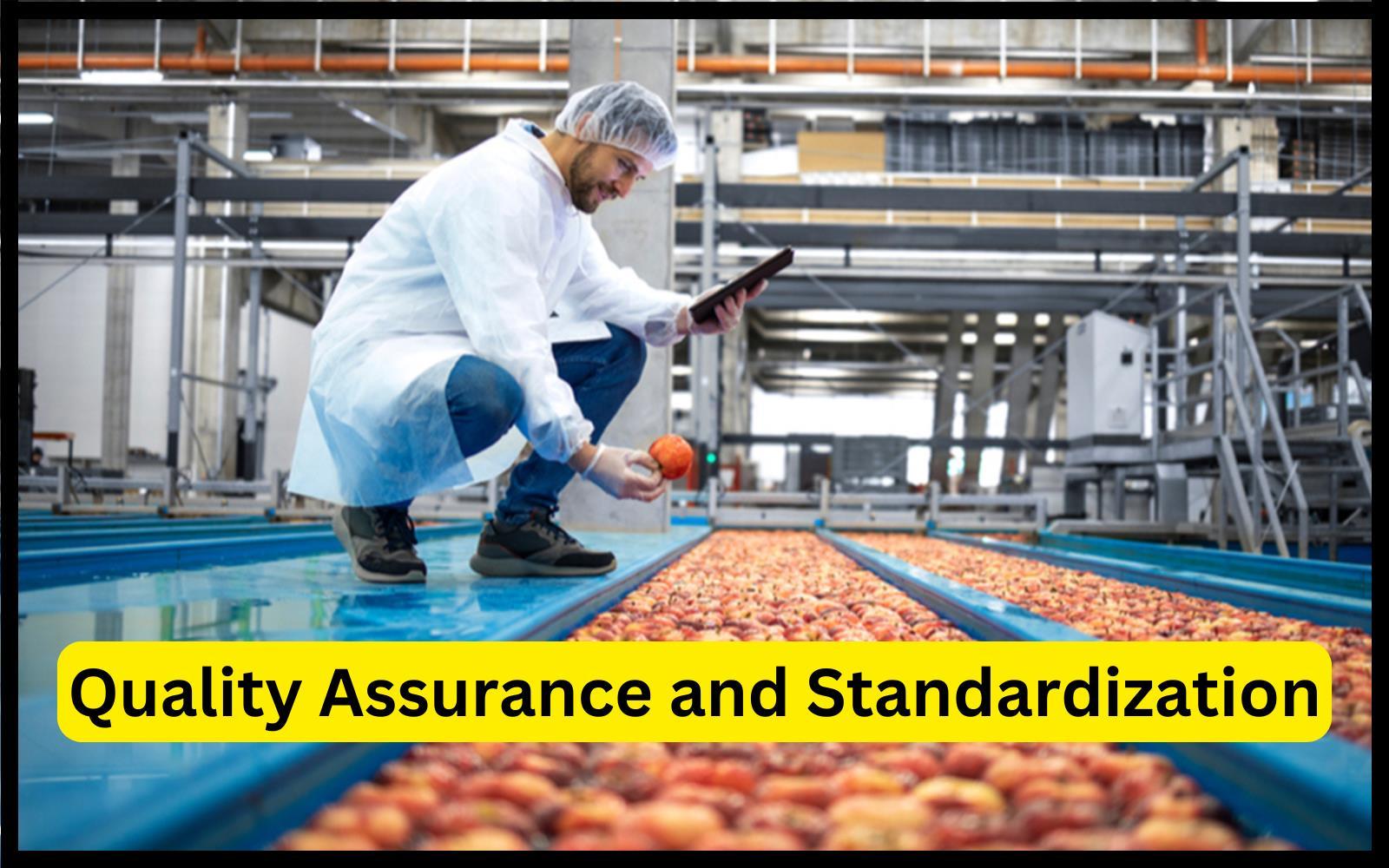Is Your Food Business At Risk? Explore Food Safety
Solutions Today

Introduction: The Invisible Threat Lurking in Food Operations
In the food industry, the margin for error is razor-thin. One misstep in handling, processing, or storage can lead to widespread contamination, costly recalls, and irreparable brand damage. Traditional paper-based systems and disconnected spreadsheets are no longer sufficient to manage such high-stakes environments. As the complexity of supply chains grows, businesses must adopt proactive, tech-driven strategies. This is where Food Safety ERP solutions emerge as a transformative force.
Understanding the Stakes: Why Food Safety Is Non-Negotiable
Food safety is not just a regulatory requirement—it is a business imperative. An outbreak linked to your products can result in lawsuits, regulatory shutdowns, and long-term loss of consumer trust. The global food industry has witnessed several high-profile safety failures, underscoring the urgent need for robust systems that ensure compliance and quality at every step. Prevention, not reaction, is the new mandate.
What Is a Food Safety ERP and Why Does It Matter?

A Food Safety ERP is an integrated software system designed specifically for the food and beverage industry to manage safety, compliance, quality assurance, traceability, and operational workflows in real time. Unlike generic ERP systems, it comes with preconfigured modules that align with international safety standards such as HACCP, FSMA, and ISO 22000. This digital ecosystem empowers businesses to act swiftly, intelligently, and consistently in safeguarding food quality.
Centralizing Compliance: One System to Manage All Regulations
Regulatory compliance often spans multiple domains—from local municipal codes to international certifications. Manually navigating this labyrinth leads to oversights. A Food Safety ERP consolidates all relevant regulatory frameworks into a single, automated system. It sends alerts about upcoming audits, flags non-compliance issues, and maintains verifiable records for every critical control point. Compliance becomes continuous and audit readiness, perpetual.
Real-Time Monitoring: Catching Contamination Before It Spreads

Early detection is the linchpin of food safety. ERP systems connect with IoT sensors and automated monitoring tools to track environmental variables such as temperature, humidity, and pH in storage and production areas. Any deviation triggers instant alerts. This early warning mechanism prevents contamination from escalating and ensures timely corrective actions—protecting consumers and preserving operational integrity.
Traceability and Recall Management: From Source to Shelf in Seconds
In the event of a product recall, time is of the essence. With a Food Safety ERP, traceability is instantaneous. The system maps ingredients, production batches, and distribution channels in granular detail. This enables precise identification of affected products, isolation of impacted lots, and immediate notification to retailers and regulators. This not only limits financial losses but also reassures stakeholders of the brand’s preparedness and accountability.
Quality Assurance and Standardization: Consistency as a Competitive Advantage

Uniformity in quality builds consumer confidence. Food Safety ERP systems enforce standard operating procedures across all departments—from procurement and production to packaging and logistics. Each task, test, and inspection is recorded and compared against pre-set benchmarks. This reduces variability, increases yield quality,
and streamlines training processes. When safety protocols are standardized, excellence becomes scalable.
Vendor and Supplier Management: Ensuring Safety Beyond Your Four Walls
Your supply chain is only as strong as its weakest link. A robust Food Safety ERP includes supplier management modules that verify vendor credentials, assess delivery performance, and evaluate ingredient safety. Documentation such as Certificates of Analysis (CoA), allergen declarations, and inspection records are stored centrally. The system can automatically block purchases from vendors with subpar safety ratings, ensuring that your quality inputs never become safety liabilities.
Employee Accountability and Training: Building a Culture of Safety

People are the frontline defense in any food safety program. ERP systems allocate tasks based on role, log actions under individual user IDs, and track training completions. Whether it’s a sanitation checklist or a compliance quiz, the system ensures that every team member is aligned with food safety protocols. This granular oversight fosters a culture of ownership and minimizes human error across all shifts.
Inventory Optimization: Reduce Waste While Maintaining Safety
Improper inventory management not only leads to wastage but also safety hazards such as expired or spoiled goods entering the production line. Food Safety ERP solutions integrate inventory and safety data to manage shelf life, rotation schedules, and storage conditions. Automated alerts for expiration dates, stock replenishment needs, and quarantine items reduce the risk of mishandling and bolster both efficiency and safety.
Data-Driven Decision Making: Turning Insights into Competitive Strategy

Beyond operational oversight, Food Safety ERP systems collect a wealth of actionable data. Trend analysis, KPI dashboards, and root cause analytics help managers identify recurring safety violations, supplier inconsistencies, and performance bottlenecks. With this intelligence, organizations can proactively revise protocols, train staff, and optimize workflows. Safety becomes not just a function, but a competitive differentiator.
Scalability and Future-Proofing: Grow Without Compromising Integrity
As your food business expands into new markets or product categories, maintaining consistency in safety practices becomes increasingly challenging. Food Safety ERP systems are built for scalability. New facilities, product lines, or regulatory frameworks can be integrated with minimal disruption. This adaptability ensures that your safety standards evolve in tandem with your growth trajectory, preserving trust across borders and categories.
Conclusion: Secure Your Food Business Before It’s Too Late

The cost of ignoring food safety risks is too high. A single oversight can unravel years of brand equity and operational goodwill. Implementing a Food Safety ERP is not just about ticking compliance boxes it’s about embedding safety into the DNA of your business. From centralized oversight to predictive risk management, ERP solutions offer a comprehensive shield against modern food safety threats. Now is the time to act. Safeguard your business, elevate your brand, and earn consumer trust with a system built for resilience, transparency, and excellence.
